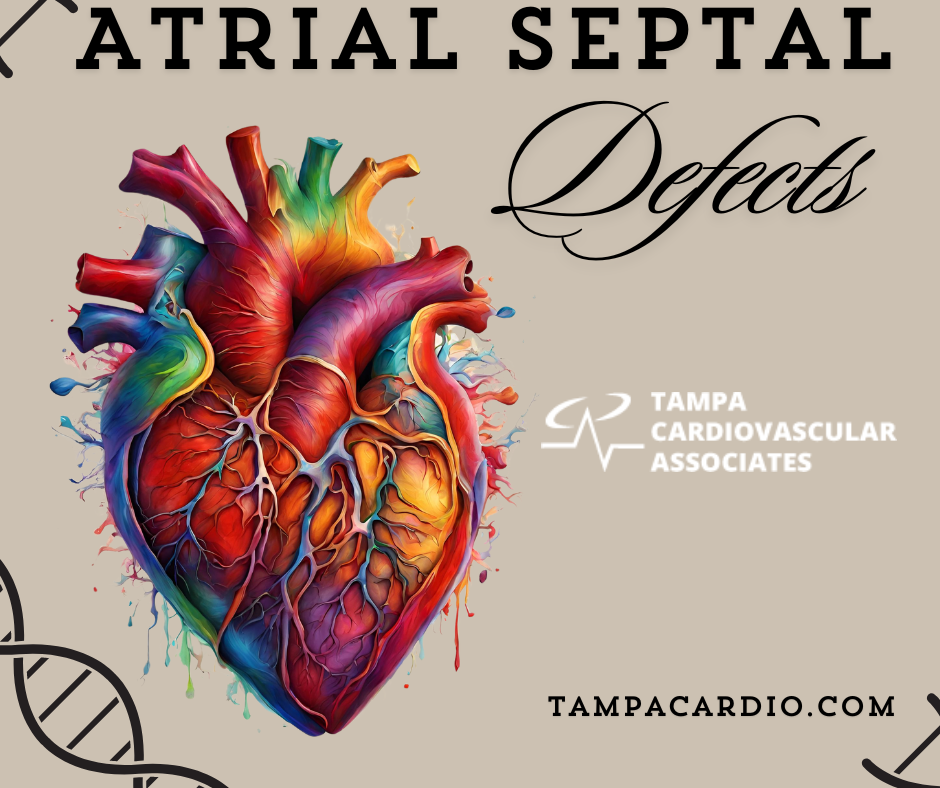Understanding Atrial Septal Defects: A Cardiologist’s Approach to Treatment
Posted by: Tampa Cardio
On: May 1, 2024

Atrial septal defect (ASD) is a heart condition that is often detected early in life, though some cases may go unnoticed into adulthood. It involves an opening in the atrial septum, the dividing wall between the two upper chambers of the heart. This hole allows oxygen-rich blood to mix with oxygen-poor blood, leading to various health issues, such as heart failure and high blood pressure in the lungs.
Treatment of ASD is crucial for preventing complications, and cardiologists play a pivotal role in managing this condition. Here’s how these heart specialists approach ASD treatment.
Getting a Diagnosis
Symptoms of ASD can be subtle or non-existent, making it essential for cardiologists to use sophisticated diagnostic tools. Echocardiograms, MRI scans, and cardiac catheterization are among the methods used to confirm the presence and severity of an atrial septal defect.
For small atrial septal defects, a cardiologist might recommend a period of observation. Some smaller ASDs can close on their own during childhood. During this time, regular check-ups are necessary to monitor the heart’s health and ensure that the defect is not causing significant issues.
Medication Management
In cases where symptoms are present but surgery is not immediately required, medication may be used to manage those symptoms. Drugs can help reduce fluid buildup in the body and make it easier for the heart to pump, alleviating some of the strain caused by ASD.
Interventional Procedures
For larger defects or when symptoms worsen, an interventional procedure may become necessary. The most common treatment is cardiac catheterization. This minimally invasive procedure involves guiding a thin tube through a vein to the heart, where a device is placed to close the hole in the septum. This method has a high success rate and typically offers a quicker recovery compared to open-heart surgery.
Surgical Repair
In some instances, particularly when the ASD is large or accompanied by other heart defects, open-heart surgery may be required. During the procedure, the cardiologist or a specialized cardiac surgeon will close the hole using a patch. This treatment has a high success rate and can prevent future complications, allowing most individuals to lead a normal life post-recovery.
Post-Treatment Care
Following an intervention, whether it’s a catheter procedure or surgery, post-treatment care is vital. Cardiologists will closely monitor the patient’s recovery, prescribing medications as needed to aid the healing process. Regular follow-up visits are crucial to ensure the heart is functioning correctly and to address any potential complications early on.
Lifestyle Changes
Cardiologists also emphasize the importance of lifestyle changes in conjunction with medical treatment. Healthy eating, regular exercise, and avoiding smoking can all contribute to better heart health and aid in the recovery process following ASD treatment.
Conclusion
The treatment of atrial septal defects involves a comprehensive approach, combining advanced diagnostic methods, potential watchful waiting, medication management, interventional procedures, or surgical repair, followed by diligent post-treatment care. Cardiologists are at the forefront of managing ASD, utilizing their expertise to ensure that patients receive the most effective treatments tailored to their specific needs.
With early detection and appropriate treatment, many individuals with ASD can enjoy a healthy, active life.
Tampa Cardiovascular Associates is here for you! Call us at 813-975-2800 to schedule your appointment.
Posted by: Tampa Cardio
On: 01/05/2024
